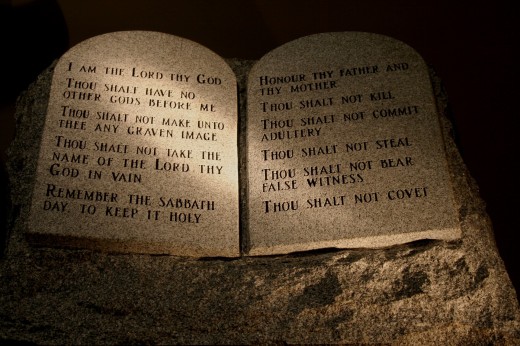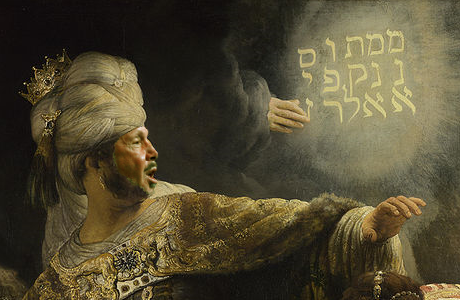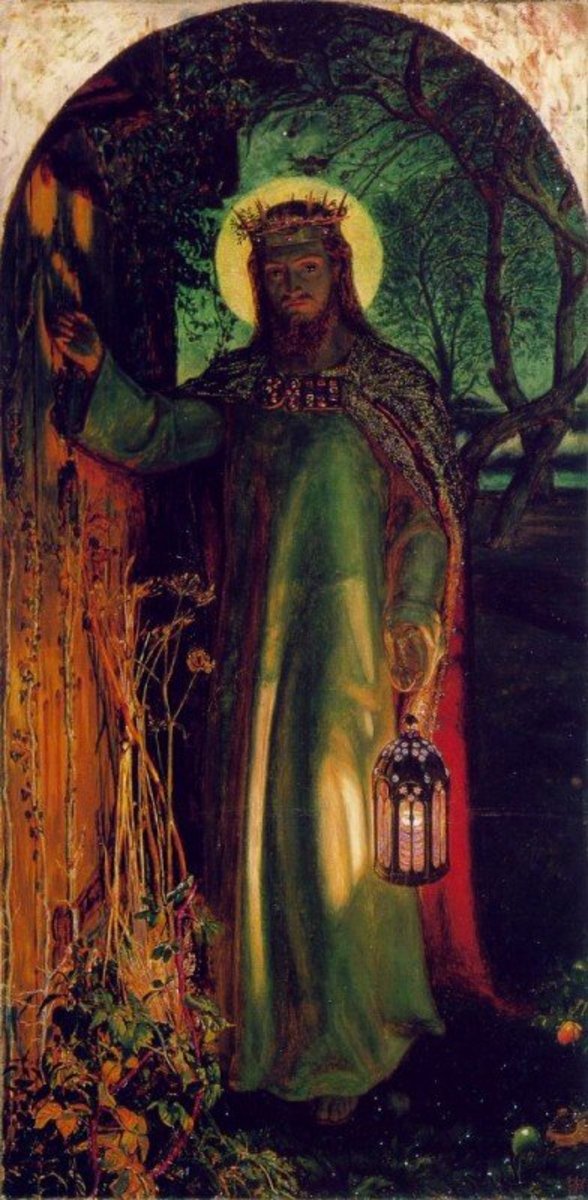The Fruit of Abinadi: Alma and Amulek—Operation: Save Souls! (Episode Three)
From Apathy to Angelic Awakening in Ammonihah
Amulek was a man who saw an angel. Two previous articles in The Fruit of Abinadi series mention parts of his life because angelic visitations are never casual—they are divine interruptions. Amulek was a regular man with regular issues, yet God used him to further His cause.
Because of the city and nation in which Amulek lived, he had some serious obstacles to overcome. He was a Nephite from Ammonihah—a real firecracker of a place. As far as the gospel was concerned, Amulek came from an apostate people. He knew about God and the coming Messiah, Jesus Christ, but those truths were not central to his life. Seeing the angel confirmed many of the ideas he had set aside or dismissed about religion.
Amulek learned:
-
God is real.
-
Everything he had been taught in the scriptures is true.
-
Keeping the commandments brings blessings.
-
God speaks through prophets.
Let’s explore.

God Is Real:
Amulek’s Faith Awakens After Angelic Visitation
In the recesses of his mind, Amulek—the man of the world and successful businessman—nurtured a belief in God, as many thoughtful people do today. The small miracles in his life and the stories passed down through his Israelite heritage lingered in his mind as quiet confirmations that God must be real.
In his first address to the people of Ammonihah, Amulek offered a scathing self-rebuke, hoping to reach similarly hardened Nephite hearts. He said:
I have seen much of [God’s] mysteries and his marvelous power; yea, even in the preservation of the lives of this people. Nevertheless, I did harden my heart, for I was called many times and I would not hear. (Alma 10:6)
Amulek had turned a blind eye to the very things he once believed about God—until the angel’s appearance compelled him to finally acknowledge with his mind what his heart already knew.
It was not empirical evidence that caused Amulek to believe in God. In truth, seeing an angel does not prove God exists any more than seeing a soldier proves a president exists. What the angel provided was evidence—evidence that angels were real. Amulek had seen one. And with that encounter, his faith in God exploded.
Raised among the Nephites, Amulek was living proof that the teachings of God had once filled that land. He was not some outsider. He was the fruit of a forgotten faith.
Scriptures Are True:
Amulek Confirms the Power of Sacred Records
Amulek was aware of the Brass Plates used among the Nephites—scriptures that contained writings similar to the Holy Bible, including the words of prophets up through Jeremiah. His household may have even contained scrolls with copies of some of those records, if not all of them.
Seeing the angel confirmed to Amulek that God had indeed caused prophets to write sacred truths to encourage obedience to His commandments. The histories recorded from Adam onward stood as witness to God's dealings with humanity—written for the benefit of those willing to read, remember, and choose wisely. They showed which actions draw divine favor and which lead to divine judgment.

Obedience Brings Blessings:
How Amulek and Alma Responded Without Delay
Amulek went home immediately. He didn’t pass Go or collect $200! Nothing distracted him. He had seen an angel.
Alma reacted the same way—turning around without hesitation and returning to Ammonihah. Both men had been called by God, and both obeyed without delay.

Both men obeyed the command from the angel to return without delay. Amulek showed deference to the will of the Lord. The angel was a catalyst for major change; but the character materials had existed in Amulek long before.
Laman and Lemuel, earlier in the Book of Mormon narrative, also saw an angel. But for them, the vision sparked no lasting transformation. Their character lacked the substance to ignite faith. The divine spark struck dead wood.
Amulek, by contrast, was already spiritually flammable—his faith just hadn’t caught fire yet. Seeing the angel brought him the blessing of further enlightenment and a surge of divine knowledge.
God Speaks through Prophets

Prophets Are God’s Voice
—And Amulek Heard It
The angel instructed Amulek to return home, for he would soon host a prophet who had urgent need due to his hasty return to the city. If Amulek had not previously understood the significance of prophets, he did now—having been rerouted by an angel to support one.
Unlike those who might claim spiritual authority after such an experience, Amulek did not assume a prophetic mantle. Instead, he subjected his will to the will of God and waited for further instruction at the hand of the prophet.
Writing on the Wall

The Lord chose Amulek to help deliver a message of repentance to his fellow Nephites. Of all the people in Ammonihah, He called a good man with a bit of renown. Though the record provides no explicit details beyond Amulek’s own introduction to the people as a minister, there exists one tantalizing clue—God once wrote a message on a temple wall, and Amulek’s ancestor, Aminadab, interpreted it.
The scripture offers no explanation of the content of that sacred writing. But among this branch of Nephites, the memory of Aminadab and the miraculous interpretation appears to have been common knowledge.
Daniel’s interpretation of the writing on the palace wall for the Babylonian king (Daniel 5) may prove instructive by comparison. Imagine if one of Daniel’s descendants were called to warn his people in a future generation. That ancestral link to the prophetic would add weight to the message. When Daniel warned King Belshazzar of the destruction of his kingdom unless he repented, the moment echoed through history. Aminadab may have delivered a similar warning to Nephite leaders in his time.
Why include this fragment in the scriptures at all? Michaela Stephens, writing on her “Scriptorium Blogorium” regarding both Daniel and Aminadab, offers this insight:
The writing [appears] to the place and [people] who need it. That the writing needs interpretation indicates that the [people] to whom it [appears] are so out of tune that they don’t understand it. The person [or people] needing the interpretation must find an interpreter, so both the writing (and the subsequent interpretation) will become very publicly known. It seems to me that this is the way the Lord rebukes a person in power who should have known better; He does it in order to make sure everyone else knows not to do those same sins.
Stephens suggests that the Lord often uses a notable figure—someone visible, familiar, and respected—to deliver a rebuke in a public way. A message to a people becomes more powerful when delivered by one of their own. Amulek was that man. God had spoken through prophets in ages past. Now, He would speak through one again. And this time, Amulek was listening.
That’s it!
The Lord didn’t send a king. He didn’t send a general. He sent a prophet and a businessman—Alma and Amulek. One had sat as the chief judge of the Nephite nation. The other had the wealth and respect of a city that had lost its way.
Alma interpreted the word of God. Amulek received it like kindling catching flame. He didn’t just open his home—he opened his life.
He fed the prophet.
Then he fed the people.
He didn’t hesitate. He didn’t go back to the office to finish a few things. He didn’t ask for a sign—he had already seen one. An angel had given the word, and Amulek obeyed. He didn’t try to take Alma’s place or start a new movement. He yoked himself to God’s messenger, to God’s mission.
He didn’t just hear the words.
He shouldered them.
The celebrity that changed Amulek’s life wasn’t Alma. It was the cause Alma carried. The words of warning weren’t famous, but they were divine. The mission wasn’t glamorous, but it was glorious. And Amulek—like so many before him and so many after—found that when you say yes to the Lord, you find your real life waiting on the other side of that yes.
A divine message.
A prophet’s voice.
A man ready to listen.
That’s how cities are saved.
Maybe we won’t see angels or host a prophet. But like Amulek, we’ve all got a knock on the door of the heart. A prompting. A word. A chance to listen, to act, and maybe even to join the mission. If God can use a businessman and a former judge-turned-prophet to save a city, He can use us too.
Next and Previous Articles in The Fruit of Abinadi Series
- The Fruit of Abinadi: Alma and Amulek—Lawyer's Case Against Faith (Episode Four)
Ancient American lawyer Zeezrom challenges Amulek, a preacher in The Book of Mormon, seeking to trap him in words about God. Discover how this clash exposes motives, tests faith, and reveals timeless lessons on integrity and devotion over personal ga - The Fruit of Abinadi: Alma and Amulek, Touched by an Angel (Episode Two)
Alma, a former chief judge turned prophet, returns to Ammonihah to preach repentance after hearing of their spiritual downfall. Imagine Donald Trump knocking on doors to preach Jesus—Alma’s mission was just as shocking to a prideful, corrupt city los
This content is accurate and true to the best of the author’s knowledge and is not meant to substitute for formal and individualized advice from a qualified professional.
© 2018 Rodric Anthony Johnson








